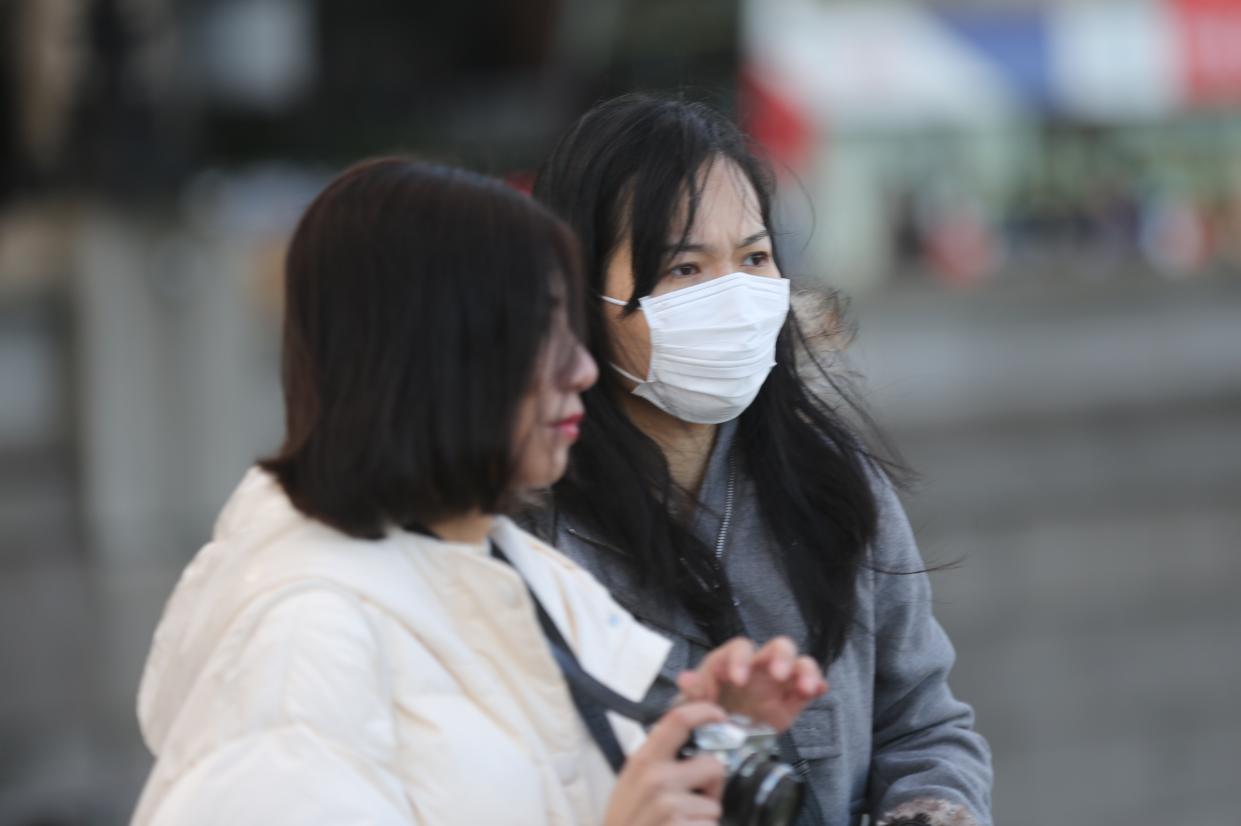Electronics giant turns TV factory over to making 150,000 coronavirus masks per day

A television factory owned by Japanese electronics giant Sharp is to produce up to 150,000 masks per day, local media has reported.
Hi-tech “clean rooms” with low levels of dust and airborne organisms will be used to manufacture the masks.
The coronavirus crisis has seen many stores in Japan run out of masks, and the government establish a strategic mask reserve, the BBC reported.
Read more: One in 25 people could be infected in Scotland
The production line in Mie near Osaka normally makes LCD panels, but will switch over part of its production to making masks.
While medical opinion is divided over the effectiveness of masks, Japanese people often wear them during the cold and allergy season.
Prime minister Shinzo Abe’s government has called on Japanese businesses to boost mask output, while tapping its budget reserve to combat the virus.
Read more: Peter Andre denies telling fans not to touch him due to coronavirus fears
The government aims to boost domestic production capacity to 600 million masks per month.
Dr Stephen Griffin, associate professor section of infection and immunity, University of Leeds, said: "The wearing of masks may provide a limited barrier to infection, but also encourages wearers to minimise touching their faces, and to adopt good 'etiquette' when faced with respiratory symptoms."
But the masks don’t fully block infection.
Read more: Disinfect your phone twice a day to stop coronavirus
Surgical masks, worn by doctors during operations, are designed to block liquid droplets that may “splash” into their face, the New Scientist reported.
They do not, however, fully seal the nose and mouth or generally cover the eyes.
Yahoo UK previously reported how cold and flu viruses can enter the body via the eyes.
Specialist surgical masks may appear more effective when used in a medical setting than by the general public. This is thought to be due to doctors also wearing protective gloves, goggles and gowns.
Hospitals are also disinfected regularly, with masks theoretically being thrown away after every use.
The surgical mask N95 respirator filters “at least 95% of airborne particles”, according to the Centers for Disease Control and Prevention (CDC).
It filters particles as small as 0.3 microns (0.0003mm), Forbes reported.
Coronaviruses are on average a little over 0.1 micron (0.0001mm) and could therefore get through.
A study by the UT Southwestern Medical Center found “no significant difference in the effectiveness” of standard surgical masks and N95 respirators when it comes to preventing flu.
Read more: Race is on to develop a vaccine against China's coronavirus
N95 respirators reportedly have to be properly fitted to a user’s face and are unsuitable for children or those with facial hair.
Users often also find them uncomfortable, the UT scientists reported.
N95 respirators can also make breathing difficult. This may be problematic among coronavirus sufferers, with breathlessness being a tell-tale symptom.

 Yahoo Movies
Yahoo Movies 

